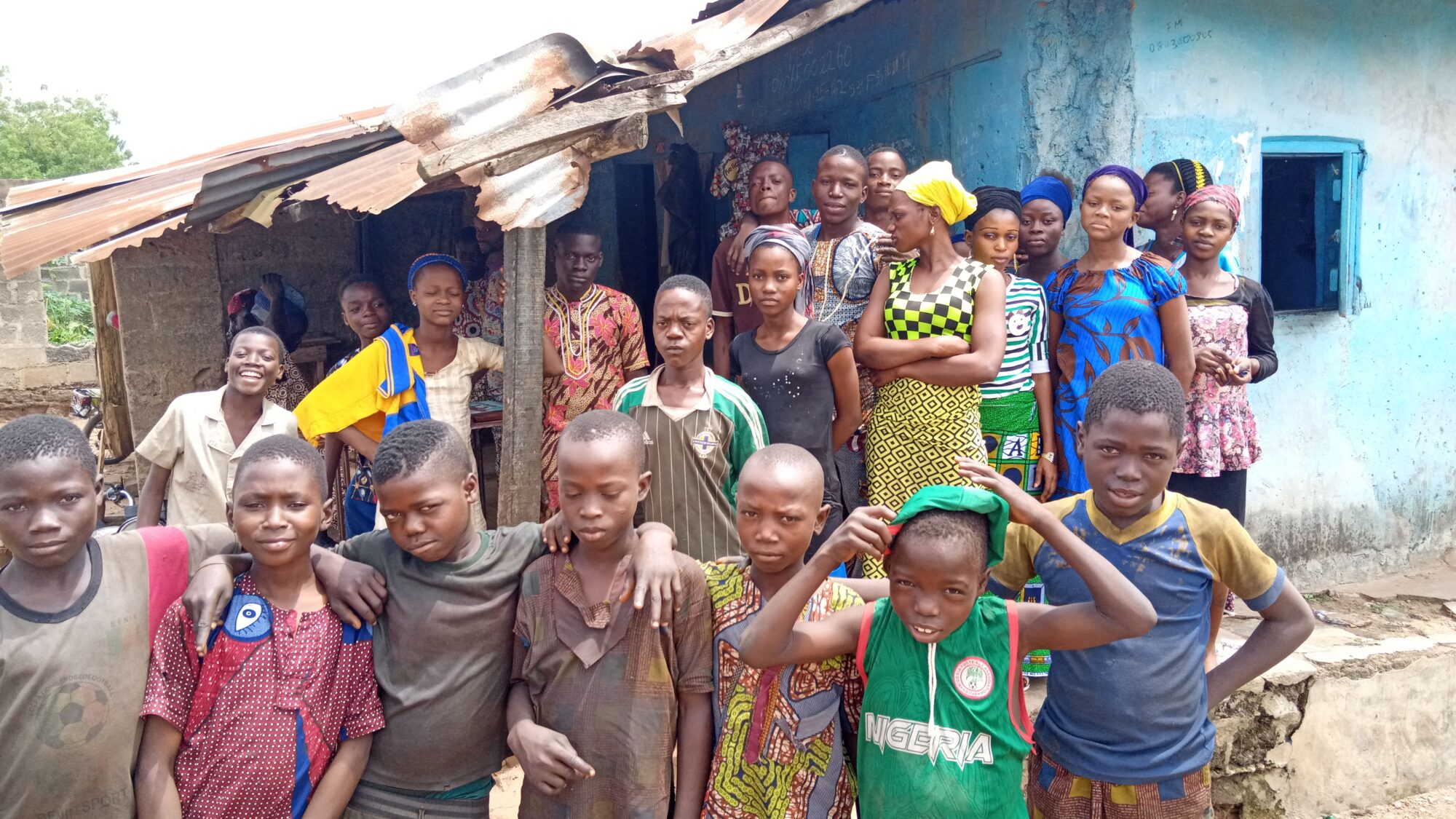When Beninese parents are pushed to the wall due to poverty and the burden of caring for too many children, they often send their wards to neighbouring Nigeria with the help of traffickers to earn extra income. In part one of this investigative series, ‘Kunle ADEBAJO tells the story of what lies on the other side of the border for children from the former French colony.
Only two days to the phone call, one of his agents smuggled in three people from the neighbouring Benin Republic: a 30-year-old female divorcee, an 18-year-old boy, and another boy of 15. Yet Baba Gebu, as he is fondly called, is expecting more soon—including, hopefully, a much younger girl requested by the reporter, who was posing as a customer.
The business is slow at this period of the year, hence the little difficulty in getting a prompt supply.
“People have gone to Lagos a lot. If we had known each other before, ah no, you’d have got your exact request immediately, even if you wanted four children,” he brags.
On most days, Baba Gebu works at a popular cement factory in Ewekoro, Ogun State. But, when he is not in the middle of his weekly work shifts, he makes extra money from delivering trafficked persons, especially children, to persons in Nigeria who need cheap labour.
Unless you are known to the network of traffickers though, getting a child can be a bit difficult. It is an illicit, underground business and to be trusted enough to be part of it, you would need not only a convincing story why you want a child but also how, in the first place, you gained access to the dealer’s contact details.
“Who gave you my number? You’re from which town?” are some of several questions asked by Iya Eleko, another popular trafficker who lives in Rounder, Abeokuta. “It’s difficult to negotiate since I don’t know you,” she tries to explain during a second phone conversation. “I don’t know where you are, and it is people I know I give children to.”
Trafficking children, as young as nine, from Benin, Togo, Ghana and other West African countries is a practice that dates back several decades. The person to whom a child is delivered has no obligation to enrol them in school and is free to use them however he or she pleases: as house helps, factory workers, street vendors—in whatever way that can bring a return on such investment. The trafficker gets a one-off payment of about N10,000 while the child’s handler, guardian, or the trafficker himself is paid periodically.
In 2005, in Cotonou, the governments of the Republic of Benin and the Federal Republic of Nigeria signed what is called a “cooperation agreement to prevent, suppress and punish trafficking in persons with emphasis on trafficking in women and children.” The agreement provides notably for a common front aimed at suppressing trafficking, including a joint security surveillance team meant to patrol the borders. But 14 years on, trafficking in persons, though less brazen, still persists.
As negotiations go on, Baba Gebu says he will bring the 15-year-old boy the following week if attempts to get a young girl are unsuccessful.
“We’ll make arrangements and bring the boy to you at Oshodi on Monday. However much his parents want to charge, I’ll let you know,” he assures.
This amount depends on how old the child is. “If the oga says this is how much he wants to pay, everyone will negotiate, so no one runs at a loss. If it is N10,000 (per month), it’s okay; and if it’s N8000, it’s okay.”
Asked if he can deliver children to work as a quarry in Nasarawa State, the middle-aged man replies he can, but says one would have to wait till next January because many of the children who travel between the countries have resumed work and won’t return to Benin until December.
“At that time if you need a lot of children, they will be available. They are our children, there is no problem.”
December is the time most trafficked children from Benin are returned home. Parents use the opportunity to renegotiate better wages on each child.

READ THE FULL REPORTS:
